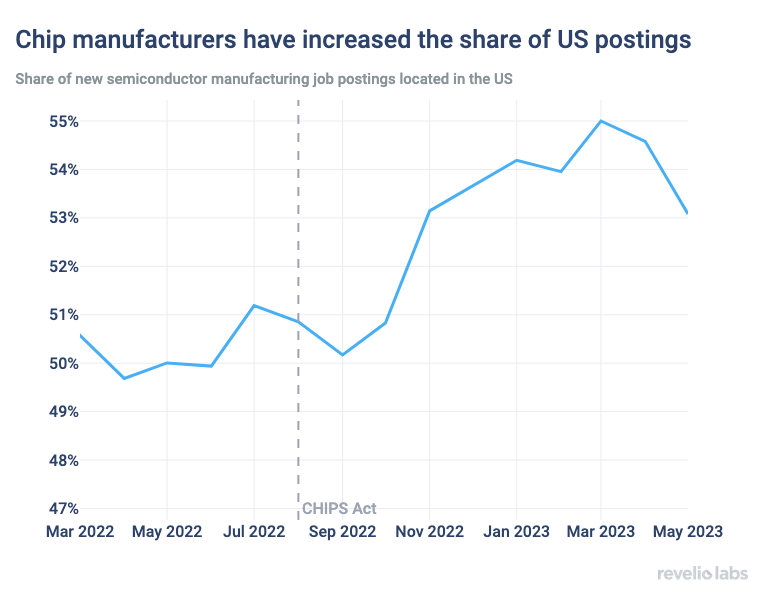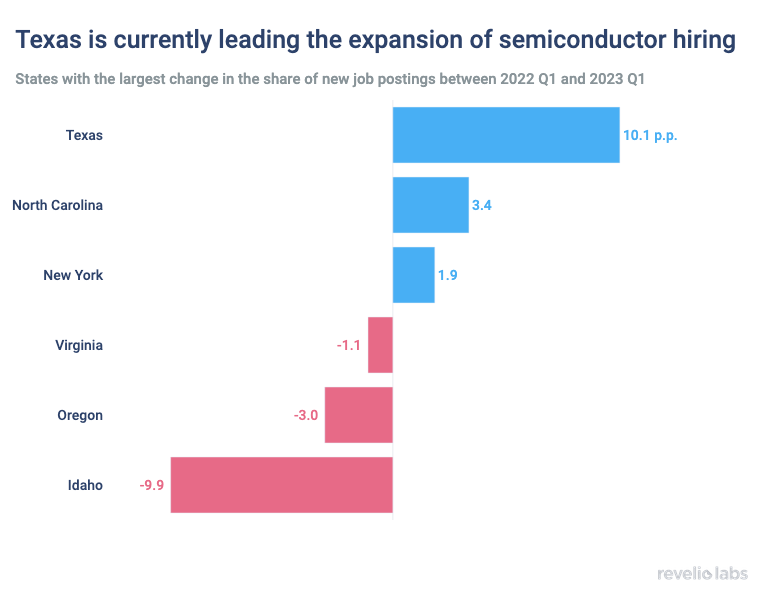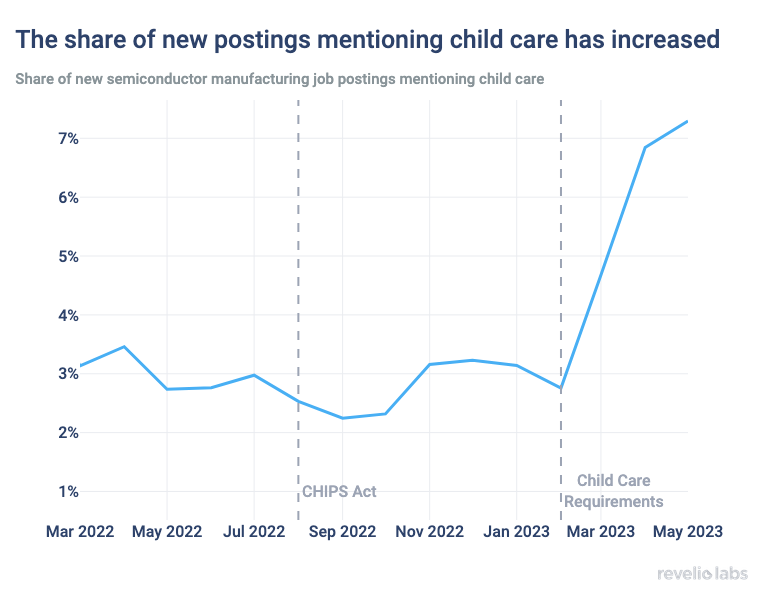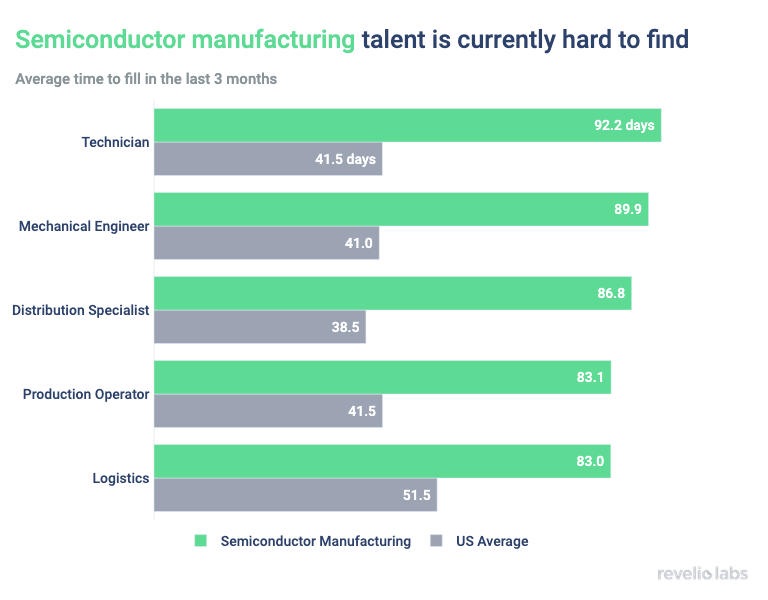All In! America Is Betting on Chips
Has the CHIPS Act had its intended effect?

The CHIPS Act has encouraged chip manufacturers to increase the share of new postings located in the US.
Texas is currently leading the expansion of the hiring of semiconductor manufacturing workers thanks to the state's already business-friendly climate and the recently approved Texas CHIPS Act.
In order to expand the workforce and bring more women to the industry amid the tightest labor market in years, the Commerce Department has required companies to submit a child care plan in order to qualify for the federal funding. As a result, the share of new postings mentioning child care has increased.
However, expansion of the workforce cannot completely solve the talent shortage in the semiconductor industry as skilled workers are hard to find at the moment.
The CHIPS and Science Act was signed into law on August 9, 2022. Its $53 billion investment in domestic semiconductor manufacturing was designed to address the semiconductor shortage, boost US economic competitiveness, and strengthen national security. Private companies responded with enthusiasm by pledging more than $210 billion in investments. This week, the CHIPS act is celebrating its first anniversary. In collaboration with Bloomberg, we take a look at whether chip production onshoring is already happening or it is still too soon to see the effect.
Looking at the 50 largest semiconductor manufacturing companies operating in the US, Revelio Labs finds that the share of new job postings located in the US has increased since the announcement. According to the Semiconductor Industry Association, the passage of the CHIPS Act has resulted in the announcements of many new semiconductor ecosystem projects, including the construction of new facilities and expansion of existing sites. As these projects begin groundbreaking and construction activities, the share of postings located in the US will continue to rise.


Which states are currently expanding the hiring of semiconductor manufacturing workers? Between 2022 Q1 and 2023 Q1, the share of new job postings in the semiconductor industry increased by 10 percentage points in Texas, our workforce intelligence software shows. This notable growth can be attributed to the state's already business-friendly climate and the recent approval of the Texas CHIPS Act, which promised to allocate millions of dollars in funding to semiconductor manufacturing and research in the state. North Carolina and New York are also following suit with the announcements of Wolfspeed and Micron’s new chip plants.


Sign up for our newsletter
Our weekly data driven newsletter provides in-depth analysis of workforce trends and news, delivered straight to your inbox!
America is on the cusp of a semiconductor manufacturing boom, which will create many well-paying jobs. As many industries are still grappling with labor shortages, the government wants to expand the workforce and bring in more women by providing affordable child care. As a result, when the Commerce Department rolled out the application process for the CHIPS Act in February, it also required companies to submit a plan to provide affordable and accessible child care for their workers. Since then, Revelio Labs sees an immediate increase in the share of new semiconductor job postings mentioning child care in their job descriptions.


However, expansion of the workforce cannot completely solve the talent shortage in the semiconductor industry. Not only did the announcement of the CHIPS Act coincide with the tightest labor market in years, skilled workers who are qualified to operate and run these semiconductor manufacturing facilities are hard to find at the moment. Using our workforce intelligence software, we see that roles that require industry-specific knowledge, such as technicians and mechanical engineers, are taking much longer to fill than the US average. Raising awareness of the chip manufacturing industry and its career path, for example by deploying training programs through community colleges and 4-year colleges and universities, will be crucial to make sure the talent pipeline can keep up with the growing demand.




